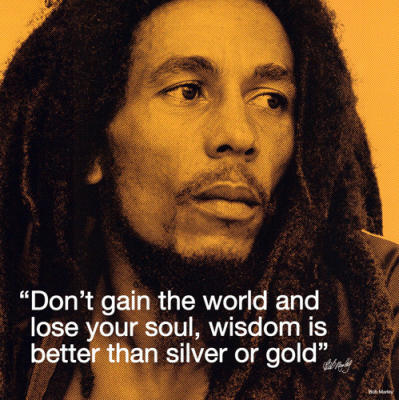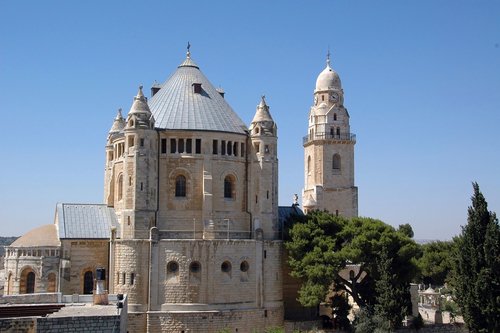I will never look at Bob Marley the same after learning about the Rastafari. Before I learned about this way of life, I just thought of Bob Marley as a guy with dreadlocks and who smoked a lot of pot. But, now, I hear Bob Marley and I think of a guy who cares about the way of life he has taken, and who is passionate about the things that his homeland has gone through and how they relate the Bible to their own lives.
In the song Buffalo Soldier, at the very beginning you hear the words, “Buffalo soldier, dreadlock rasta,” this to me makes it known that Bob Marley is extremely proud of his way of life.
“Stolen from Africa, brought to America. Fighting on arrival, fighting for survival.”
This line makes me think of the captivity of Babylon, and how the homelands were destroyed and had to start over and had to fight for their lives to be rebuilt. Bob Marley uses it in the context to me, as being taken from Ethiopia and not wanting to leave, and fighting to get back to where they came from.
 Whenever we were shown the cover for the album, “Exodus” we mentioned what we thought was interesting. I thought it was interesting how the title of the album was larger and more prominent than the artists name. That to me says that Bob Marley was more concerned about the story he was telling, than his name being known.
Whenever we were shown the cover for the album, “Exodus” we mentioned what we thought was interesting. I thought it was interesting how the title of the album was larger and more prominent than the artists name. That to me says that Bob Marley was more concerned about the story he was telling, than his name being known. In the song Exodus, the words,
“Send us another brother Moses (Movement of Jah people!) From across the Red Sea!”
Bob Marley took direct instances from the Bible and incorporated them into his music. He includes things from Christianity, and his own way of life, Jah.
Bob Marley was not just a guy who made music and smoked a lot of pot, like I originally thought. Bob Marley’s music was a way of sending out the messages of his way of life in a way that would make people want to listen.





